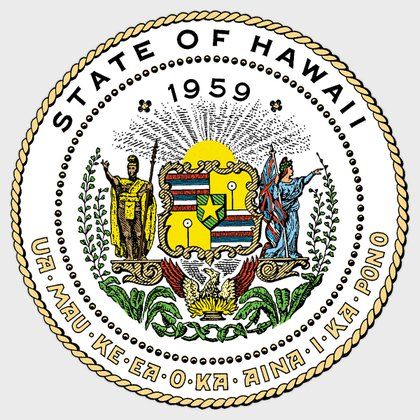Advisory Opinion 00-11
The issue presented is whether a candidate or committee may use a depository of a securities broker to maintain campaign contributions. The Commission by this advisory responds in the affirmative provided certain conditions are met. All records of the candidate in the depository must be available for review or audit in the state of Hawaii, the depository must mirror a financial institution such as a bank, and the funds cannot be invested in any security or bond where the principal is at risk.
Section 11-199(a), Hawaii Revised Statutes reads as follows:
All monetary contributions shall be promptly deposited in a depository institution, as defined by section 412:1-109, duly authorized to do business in the State, such as a bank, savings bank, savings and loan association, depository financial services loan company, credit union, intra-Pacific bank, or similar financial institution, the deposits or accounts of which are insured by the Federal Deposit Insurance Corporation, or the national credit union administration in the name of the candidate, committee, or party, whichever is applicable. (Emphasis added)
Section 11-199, Hawaii Revised Statutes was amended in 1997 by Act 375 (HB 140) to insure that campaign contributions are deposited into a financial institution in the State of Hawaii, and the funds would not be invested in any securities or bonds where the principal or contributions would be at risk. Section 11-199(a), Hawaii Revised Statutes, is clear on its face that contributions must be deposited into a “depository institution” such as a bank in the State of Hawaii. Funds must be available upon demand, as in a checking or savings account, and be insured by the Federal Deposit Insurance Corporation or the National Credit Union Administration.
The language of the law contemplates recent industry regulatory changes, which allows banks to engage in securities and security brokerages to engage in activities closely mirroring demand deposits or checking accounts. For example, Morgan Stanley Dean Witter, a traditional brokerage house for securities and other similar investment activities, provides clients with a program called Active Assets Insured Account. The Active Assets Insured Account is virtually identical to a checking account at a traditional banking institution. The account functions like a bank deposit account and is fully liquid, offering Federal Deposit Insurance Corporation insurance coverage up to $100,000 per depositor. The account, in addition to check writing, provides cash through Visa automated teller machines, and electronic bill paying services. Monthly statements, similar to bank accounts, are provided to clients.
Thus, the Morgan Stanley Dean Witter Active Assets Insured Account as currently structured is interpreted to be a “similar financial institution” as contemplated under section 11-199 (a) Hawaii Revised Statutes. The interpretation is based upon the characteristics of the Active Assets Insured Account being similar to a checking or savings account in a traditional financial institution. This advisory opinion does not apply to any other account or program of Morgan Stanley Dean Witter or any other securities brokerage house.
This is provided by the Commission as a means of stating its current interpretation of the Hawaii Election Campaign Contributions and Expenditures laws provided under HRS section 11-191, et seq.and the administrative rules of the Commission provided in chapter 2-14, Hawaii Administrative Rules. The Commission may adopt, revise, or revoke this Advisory Opinion upon its own initiative or upon the enactment of amendments to the Hawaii Revised Statutes or the adoption of administrative rules by the Commission.
Dated: Honolulu, Hawaii, December 22, 2000.
CAMPAIGN SPENDING COMMISSION
___________________________________
A. Duane Black
Chairperson
___________________________________
Della Au
Commissioner
___________________________________
Clifford Muraoka
Commissioner
___________________________________
Mona Chock
Commissioner
__________________________________
Richard Choy
Commissioner


